Introduction
In the world of entrepreneurship individuals frequently face a decision between two routes. Entering into a franchise agreement and buying an established business outright. Both choices come with benefits and obstacles that play a crucial role in shaping ones path to achievement. Opting for franchising provides the appeal of established brand visibility and a structured support system which can be particularly advantageous, for newcomers looking to venture into business ownership with a sense of security.
On the hand purchasing a well established company grants more autonomy and access to an already established clientele resulting in a potentially seamless shift and quicker earnings. This piece explores factors for hopeful business owners ranging from assessing financial stability and grasping legal responsibilities to promoting efficient communication during ownership changes. Whether beginning a business venture via franchising or acquisition making informed choices is vital in laying the foundation, for enduring prosperity.
Understanding the Difference Between Franchising and Buying an Existing Business
Identifying the distinctions between franchising and purchasing an established enterprise could influence your path as an entrepreneur. Many find franchising attractive due to the established brand and proven enterprise model it provides. This arrangement not only offers the advantage of brand recognition but also provides assistance from a larger entity, which is particularly beneficial for those who are new to managing a company. According to Stephanie Wells of Formidable Forms franchising presents an opportunity to gain autonomy while leveraging a support network.
'Taking into account the aspect of the coin implies that when you acquire an established enterprise, it provides you with greater authority over various matters. This opportunity enables you to negotiate conditions and costs by evaluating the proprietor's financial situation, which permits you to guide choices in accordance with your objectives. Analyzing the clientele and the operations within the establishment can create a pathway for your success.'. In a published piece it was mentioned that being aware of your possible responsibilities. Whether its overseeing a team or operating several stores. Can influence your outlook and steer your choices through the deciding phase.
In a market environment, possessing a reputable brand via franchising could attract more patrons and encourage their return. Studies show that people tend to prefer brands they're familiar with which could make a big difference, for entrepreneurs starting out. On the side, purchasing an already established enterprise allows you to utilize its existing customer base, leading to a smoother transition and potentially quicker profits.
In the end. 'All things considered, decide on franchising or purchasing an established enterprise based on your objectives and the amount of control you seek, in addition to how you see yourself progressing in the commercial sphere in the future.'.
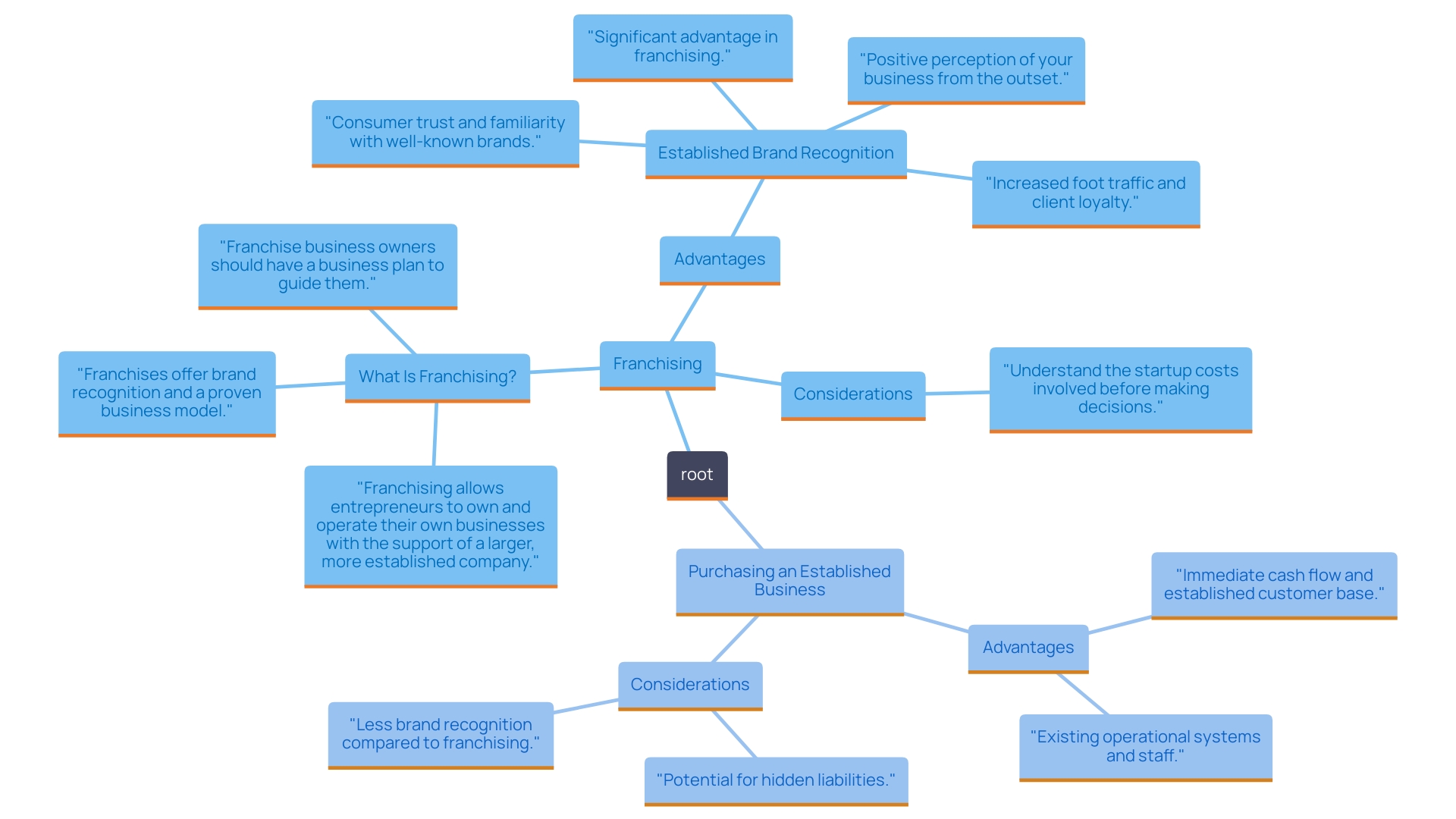
Key Considerations Before Buying a Business
Before initiating the process of purchasing a venture, it's essential for prospective buyers to thoughtfully evaluate their motivations and future objectives. The initial step involves an examination of different aspects like market trends, location, and the specific type of endeavor that aligns with one’s passions and skills. This correlation not boosts contentment but also improves the chances of achieving success, in the purchase.
It's crucial to consider preparedness when looking to make a purchase decision in the commercial realm too! 'It's advised that prospective buyers assess their situation by evaluating aspects such as their available funds and financing possibilities.'. Nanxi Liu from Blaze. Tech highlighted the importance of setting a price goal as it can greatly simplify the decision making journey, for buyers when faced with the complex and costly procedures associated with mergers and acquisitions.
'Starting a venture is no small task and requires a significant amount of time and dedication to see it through successfully according to Michael Black from Richter firm who highlights that mergers and acquisitions go beyond just transactions.'. They are strategic decisions with clear objectives, like expanding reach or entering new markets which require thoughtful planning and commitment in terms of time and energy investment.
In summary, it's crucial for prospective purchasers to consider long-term outcomes rather than concentrating on immediate profits and instead prioritize the trajectory of the enterprise over the next five to ten years. Recognizing the lasting impact of an acquisition can help in making decisions and ensuring that the chosen course is in line with personal and career goals. By adopting a strategy, buyers can make well-informed decisions and prepare themselves for a smooth transition into successful ownership.
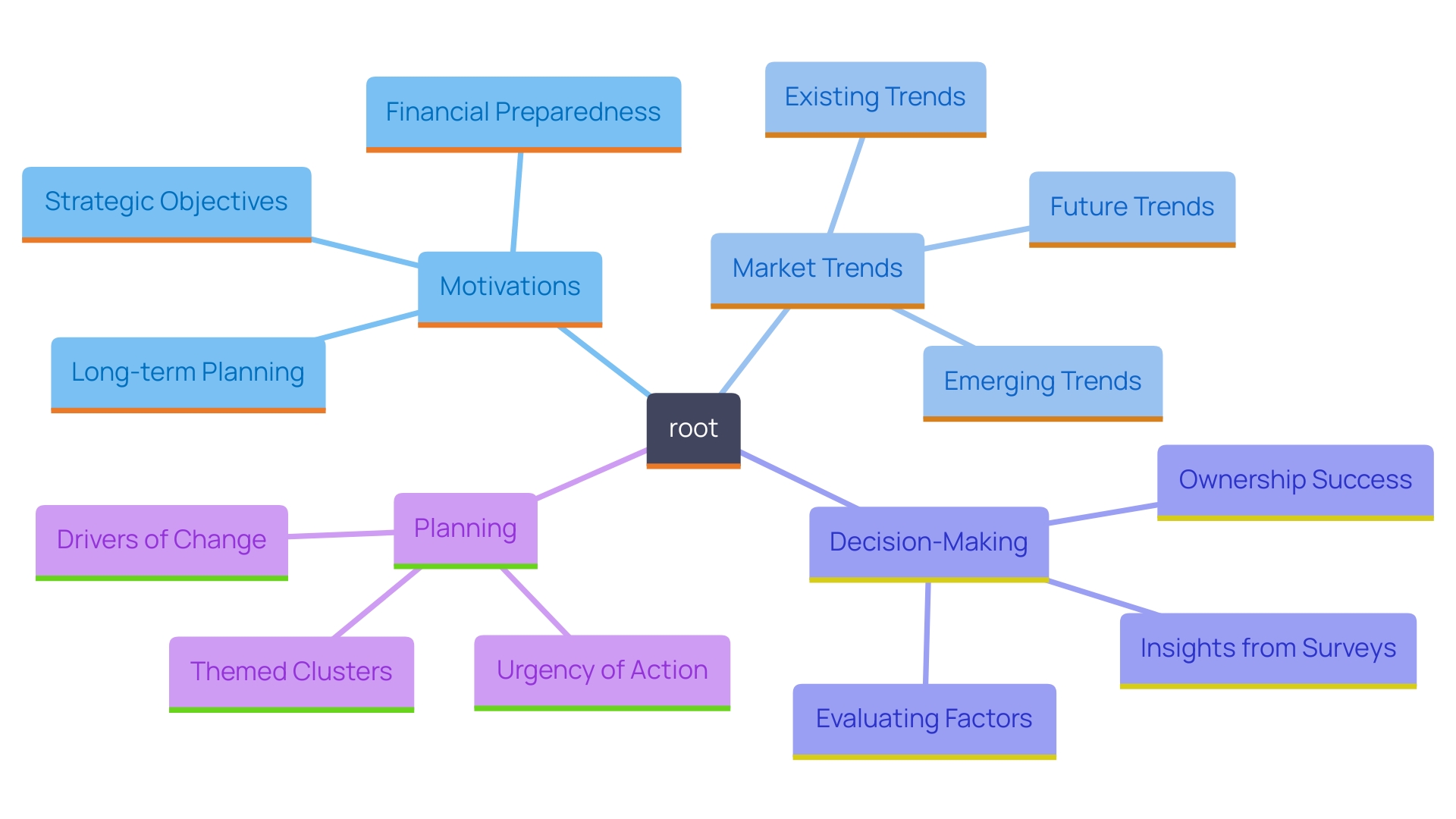
Evaluating a Business for Purchase
Evaluating an enterprise for acquisition requires a technique that entails an in-depth exploration of its financial condition and operational performance while taking into account its market standing as crucial elements to examine from the beginning is the assessment of earnings quality (EQ) which involves carrying out a thorough investigation of the financial results of the organization in question This analysis focuses on identifying the feasibility and accuracy of reported profits revealing any possible risks and confirming the reliability of revenue streams.
Important aspects to consider are the following;
Examining revenue sources is crucial to confirm their stability and longevity beyond being steady, over time. Thoroughly analyzing any increases or reliance solely upon key customers is important to mitigate potential risks in case these clients are no longer part of the picture.
Profit margins are essential to understand as they provide insight into the effectiveness of an organization's operations. A successful enterprise typically displays margins that indicate effective management of expenses and pricing approaches.
Evaluating the surroundings is crucial in establishing the market stance of an enterprise by examining its clientele. 'Whether it caters to a wide range of customers or targets a specific segment or a combination of both demographics and purchasing patterns are key factors in recognizing the organization's strengths and distinctive selling features.'.
When considering acquiring a company, it is essential to assess its financial obligations and debts to understand how they may affect the entity's worth and future earnings potential.
Making informed decisions is essential at this stage of the process, given the perspective shared by Abhijeet Kaldate from Astra WordPress Theme With the growing interest, in this sector recently it remains relatively undervalued." This highlights the significance of research not only for reaching a mutually beneficial buying price but also for guaranteeing a wise investment choice. Performing a comprehensive evaluation equips buyers with the knowledge to navigate through the intricacies of the purchasing process successfully.
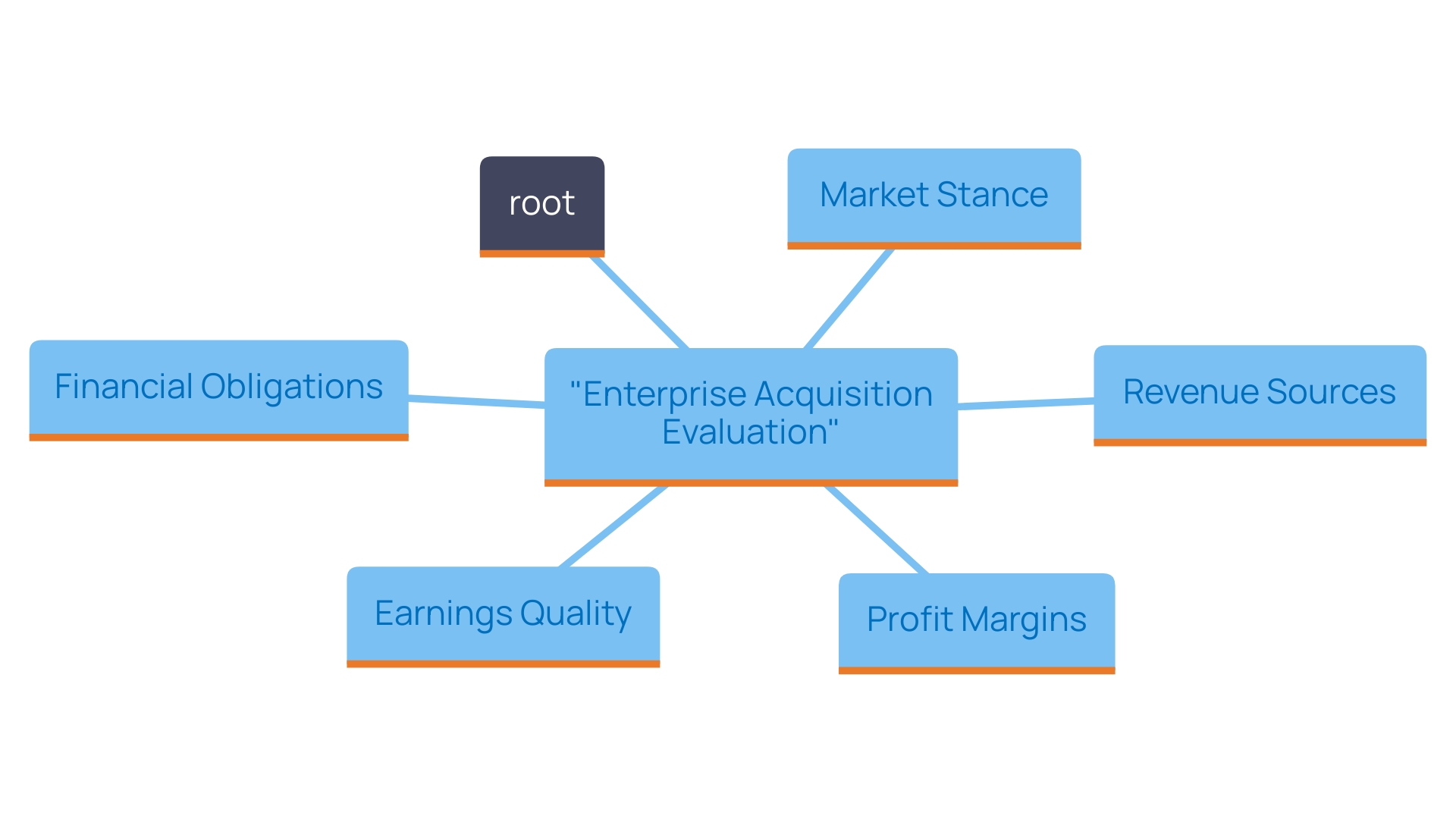
Legal and Financial Aspects of Buying a Business
Successfully completing a business acquisition requires a grasp of the legal and financial aspects involved in the process. It is essential to have an understanding of the purchase agreement as it lays out the terms of the deal and safeguards the interests of all parties. Being transparent, about the stakeholders of the company being targeted is vital. This involves identifying any joint ventures or partnerships that could impact the transaction positively or negatively. According to Christian Atzer, from Baker McKenzies team emphasizes the importance of creating a plan to interact with these parties is essential particularly if a takeover or discussion is needed.
Local regulations must also be taken into account without fail when considering compliance requirements for businesses to follow suit with the law in regions, like the Texas Data Privacy and Security Act emphasizing the significance of understanding the diverse legal mandates across areas. Moreover, it is essential to review any possible taxes that could arise during the transaction process to avoid unforeseen surprises after finalizing the acquisition.
Collaborating with financial consultants is a smart decision that can streamline these intricate matters.Their knowledge can assist in clarifying responsibilities. Guarantee that every detail of the deal is taken care of. For example a comprehensive readiness process, called the Data Prep stage involves gathering financial records and client information. This readiness not empowers the seller but also boosts trust, in potential investors or buyers by responding to any inquiries they might have.
'Based on current industry trends like the findings in the Fiserv Small Enterprise Index report revealing that small enterprises are displaying resilience and flexibility in an ever-changing economic environment. This ability to bounce back highlights the significance of having legal and financial structures in place to set up enterprises for smooth transactions. When all involved parties are well informed, the transaction is likely to go smoothly, paving the path for future progress and achievement.'.
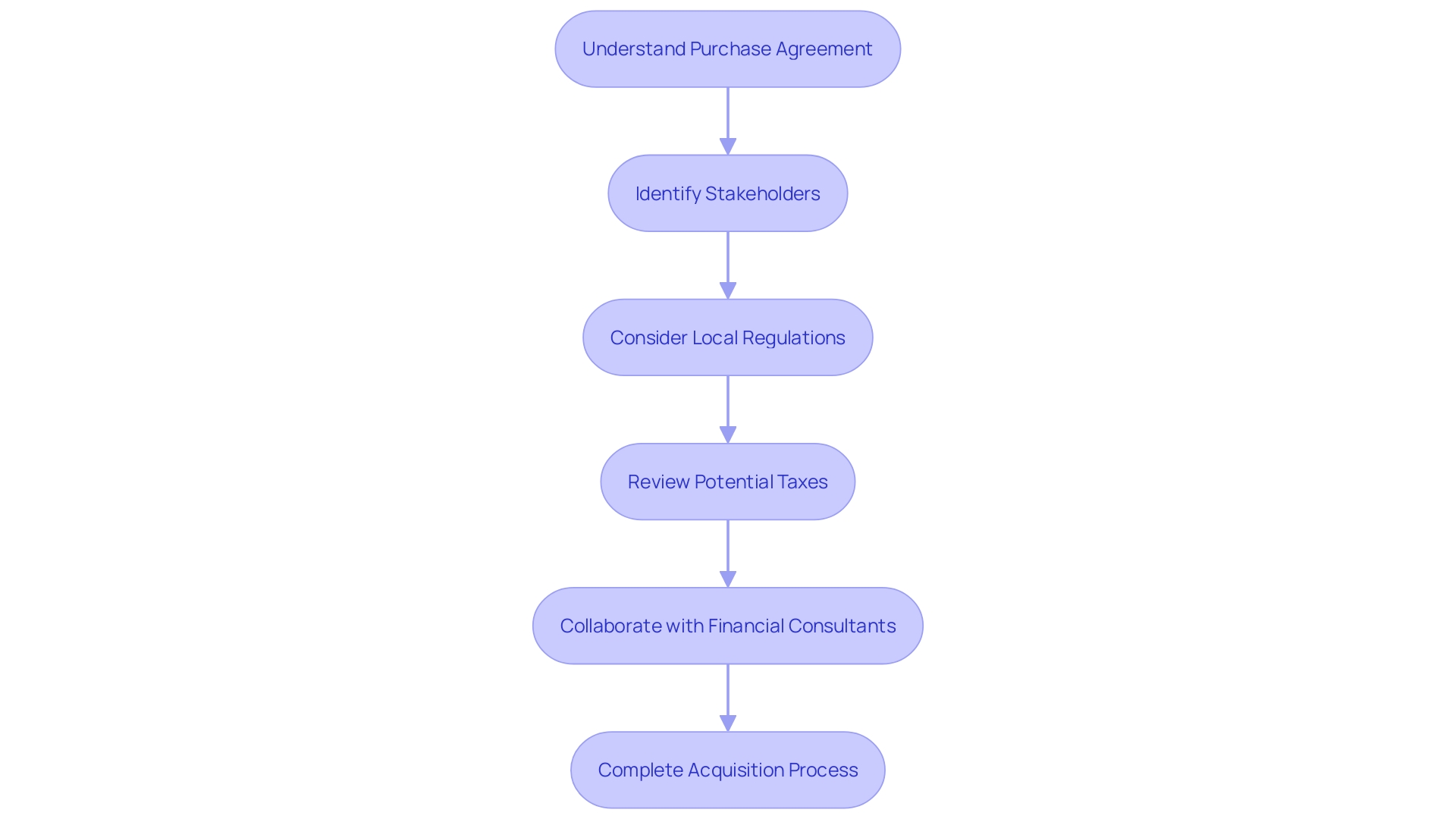
Transferring Business Ownership
Finalizing a purchase agreement signifies the start of a change in ownership dynamics. The process of transferring ownership entails updates to licenses and permits and adjustments to contracts with suppliers and customers to uphold consistency and compliance standards. This stage goes beyond tasks—it represents a pivotal juncture that establishes the trajectory, for future endeavors. Clear and efficient communication plays a role during this transition period as research indicates that 66% of prosperous company restructurings are backed by a robust communication strategy. Ensuring that employees and stakeholders are kept up to date on any changes helps to create a feeling of safety and involvement, among them.
Joan Beets wisely noted that change is an aspect of both life and business affairs." Acknowledging the responses that accompany such changes is essential Workers might feel uncertain about their positions and the stability of their jobs." Through discussions about the motives, behind the change and the expected results " employers can ease worries and cultivate trust among their staff members."
Furthermore keeping up to date with regulations like Pennsylvanias Act 122 is important as it requires registered entities to submit annual reports. Understanding these updates is crucial as they can have an effect, on operations and need to be dealt with promptly to prevent any issues from arising.
Amidst these shifting dynamics of the environment encouraging conversations and fostering a caring atmosphere can result in smoother shifts ultimately boosting efficiency at work and keeping employee spirits high.
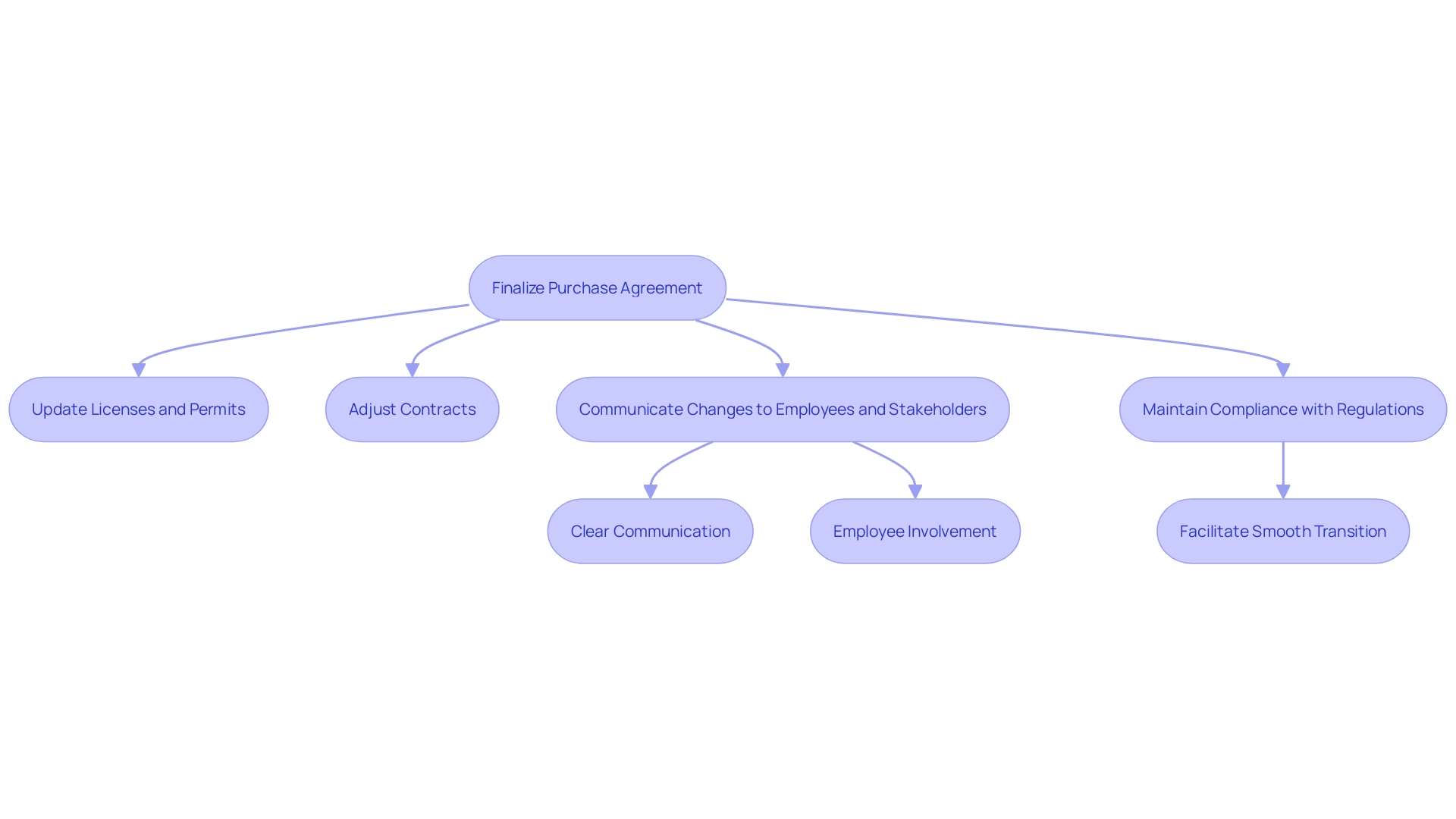
Post-Acquisition Steps and Integration
Initiating a venture marks the start of an exciting journey that involves shifting attention towards merging and enhancing operational effectiveness swiftly afterwards. 'It is essential to establish measurable goals during the initial phase as they serve as a guide for assessing how well the acquired entity is performing.'. Engaging with employees plays a role as their perspectives can unveil hidden cultural intricacies and operational advantages that might not be obvious, at first glance.
'Acknowledging the importance of nurturing client relationships is essential in operational activities today. You need to examine how clients interact with your offerings and take into account their input to identify chances for enhancement and innovation. This method aids in keeping clients while also attracting new ones. Adjusting tactics based on these insights lays the foundation for enduring growth and success.'.
A relevant example is when a company secured a competitor's website and gained a rise in prospective clients and visibility due to the action, as combining the two platforms significantly enhanced their market presence by demonstrating how strategic integration can enhance results.
In addition to that point brought up by specialists is the necessity of conducting research at this stage of the process. Jason Turner who established the Venbrook Group points out that evaluating compatibility in terms of culture and operations is similar to getting ready, for a marriage. Both sides need to agree on principles and future goals for a collaboration.This thorough method can reveal partnerships and reduce risks to a minimum.
In todays business landscape businesses are using mergers and acquisitions more to adapt to market shifts. When private funding is not firms opt for M&A to gain essential resources and maintain their competitive advantage in the market. A study shows that a majority of participants in a survey are being picky about the deals they explore due to worries, about valuation differences that have hindered M&A transactions.
In this situation the process of integration becomes a point that has the potential to shape the course of growth and success for the company. A key factor is to remain adaptable and keep sight of goals so that companies can turn challenges into chances and set a path, towards a bright future.
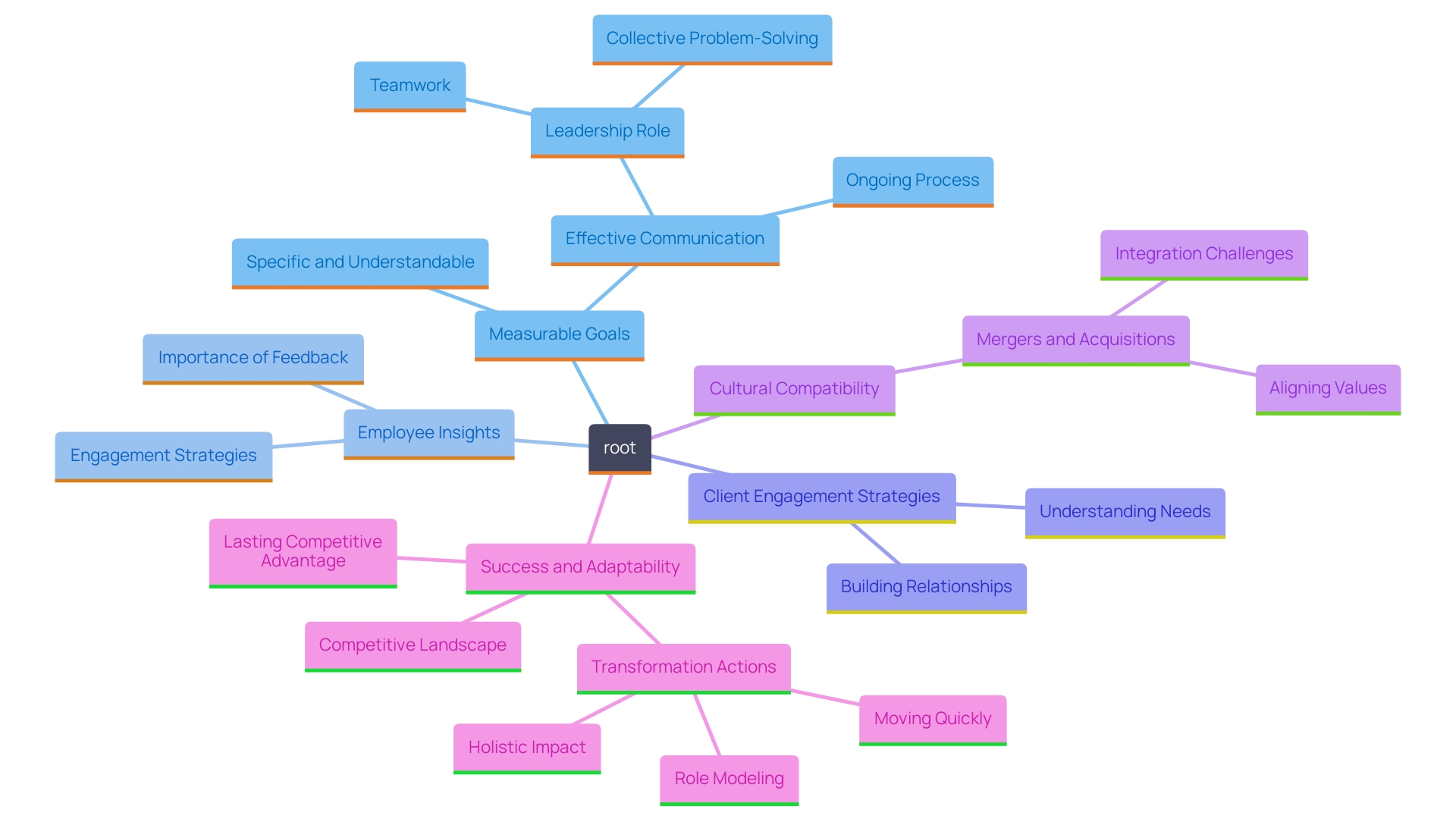
Conclusion
When deciding between franchising and buying a existing business as a budding entrepreneur setting priorities is key franchising may seem attractive to newcomers due to the brands recognition and support it offers on the other hand purchasing an established business grants more control and immediate access, to customers possibly resulting in quicker profits Ultimately the choice depends on individual goals and the level of autonomy desired.
Prior to buying something its important to consider what drives you and your future goals first.Getting a grasp of market trends and ensuring you're financially prepared can make a big difference in achieving success.Having a thought out plan is crucial, for effectively dealing with the intricacies of mergers and acquisitions.
An in depth assessment of the company is essential. Should center around its financial well being and operational effectiveness.The crucial aspects to consider include the stability of revenue and the profitability margins which play a role, in assessing investment feasibility.Work with professionals can improve the process of making decisions.
In any acquisition deal it's crucial to take financial factors into account. Knowing the ins and outs of purchase agreements meeting compliance standards and being aware of tax consequences all play a key role in ensuring a seamless transaction. Open communication among everyone involved helps build trust and paves the way, for prosperity.
Transitioning ownership necessitates planning and effective communication to foster trust within the company while integrating post acquisition is crucial, for sustainable expansion and retaining customers.
To sum it up concisely; making informed choices and taking a proactive stance are crucial for attaining enduring success, in the ever evolving business environment.




